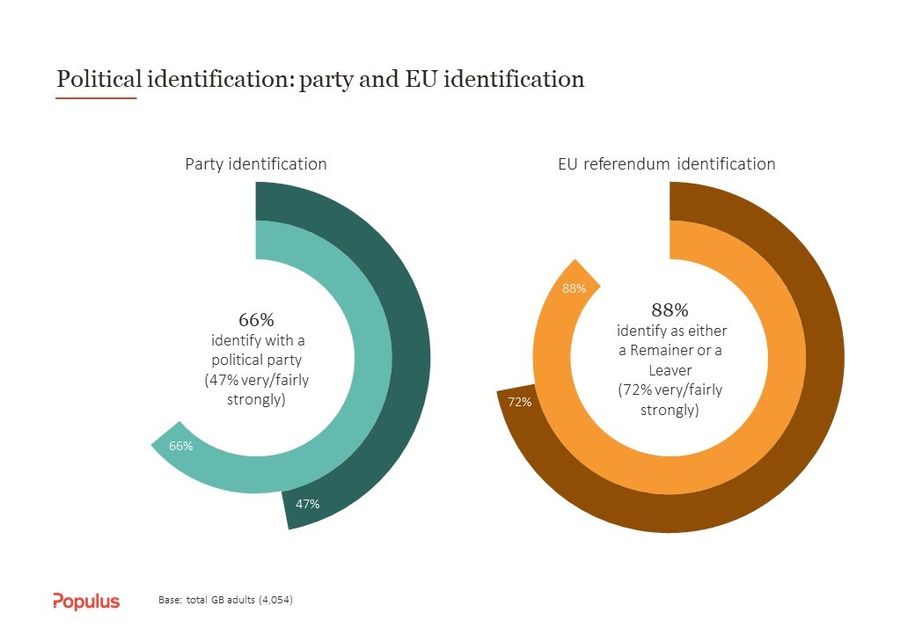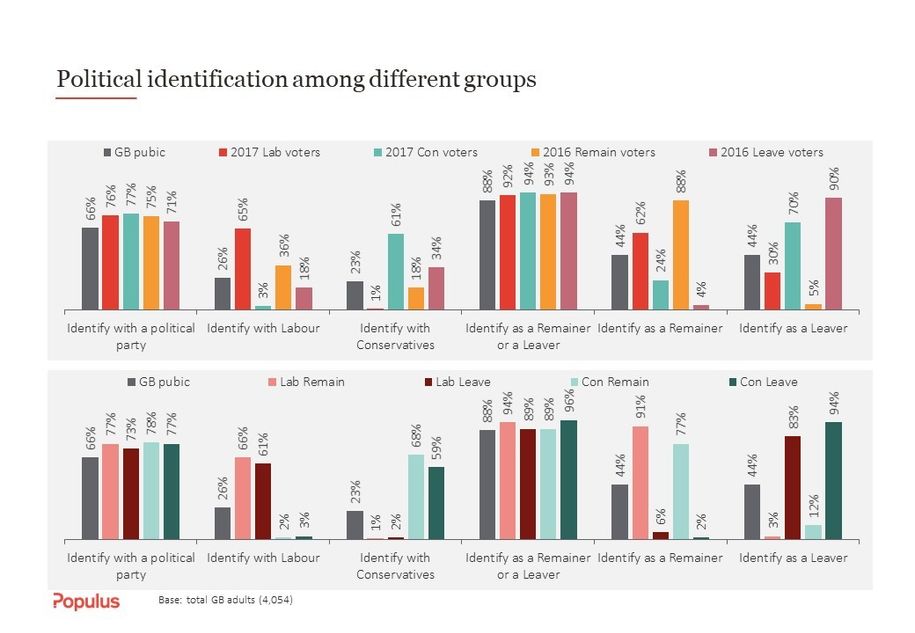Ahead of the European Parliamentary elections next week, parties have a decision to make: will they appeal to people’s views on Brexit, or to their party alliances?
If new research by Populus is anything to go by, it’s the former that matters more. In a new poll of British adults, they found that 88 per cent of the public identify as either a “Remainer” or a “Leaver”—while only 66 per cent of people identify with one of the main parties.
The difference is even bigger when it comes to those who identify “very” or “fairly” strongly. 72 per cent of respondents said they did so when it comes to their stance on Brexit, whereas only 47 per cent felt the same about their political party.
A country divided
Populus found that the strength of feeling about Brexit points both ways, with the country evenly divided: 36 per cent of the population identify strongly as Remainers, and the exact same percentage identify strongly as Leavers.Similarly, just as 76 per cent of 2016 Remain voters identify very or fairly strongly with Remain today, so too do 76 per cent of 2016 Leave voters identify strongly as Leavers.
The challenge for the main parties
That may be good news for those parties that are campaigning principally on their Brexit stances, such as the Liberal Democrats who are pushing a Remain line, or the Brexit Party which is campaigning almost exclusively on their strident opposition to EU membership. (The latter group have not even released a manifesto.)Yet other details of the poll pose a particular challenge to the main parties—Labour and the Conservatives—which hope to maintain an uneasy electoral coalition of “Leave” and “Remain” voters.
Populus found 54 per cent of Labour voters identify very or fairly strongly as Remainers. For the Conservatives, it’s 59 per cent who identify very or fairly strongly as leavers.
![article body image]()
What’s more, Labour Remainers are more likely to identify strongly with their “Remain” identity than their “Labour” one. The same dynamic plays out with Conservative Leavers.
Opportunities for new groups
Director of Populus, Owen Thomas, said: “The British population remains as divided on Brexit as in 2016. With identification with Remain and Leave so strong, and more prevalent than identification with the traditional parties, politics in Britain is likely to remain turbulent.”“How the main parties adjust and win new coalitions of voters will be crucial, but there are clearly opportunities for those new parties that have fully aligned themselves with one side of the Remain-Leave division.”
Populus interviewed a nationally representative sample of 4,054 adults (18+) in Great Britain online between 11th and 15th April 2019. Populus is a member of the British Polling Council and abides by its rules. For more information, see www.populus.co.uk












